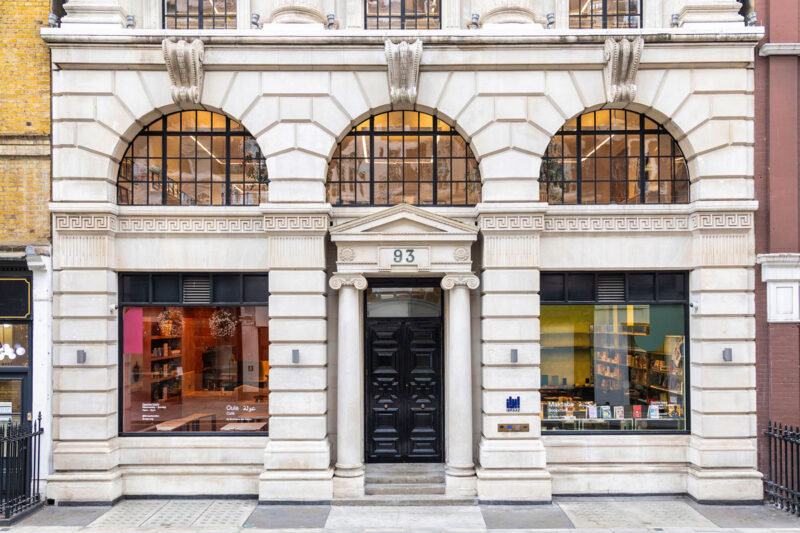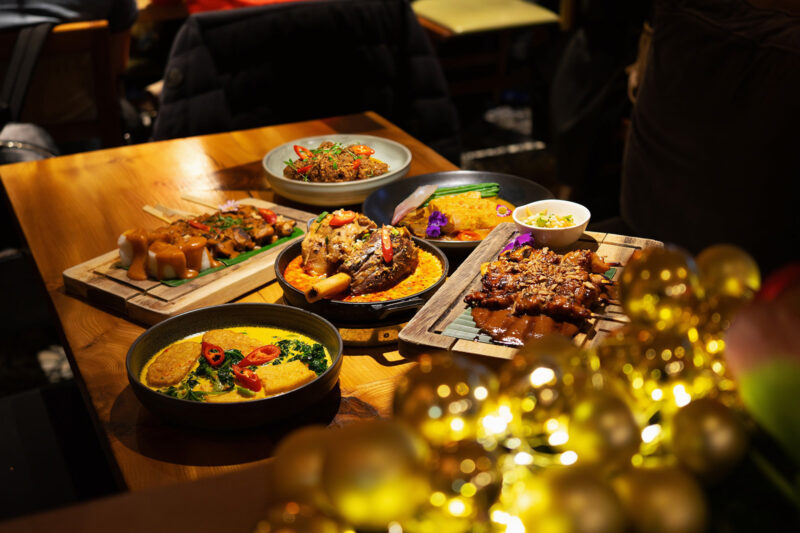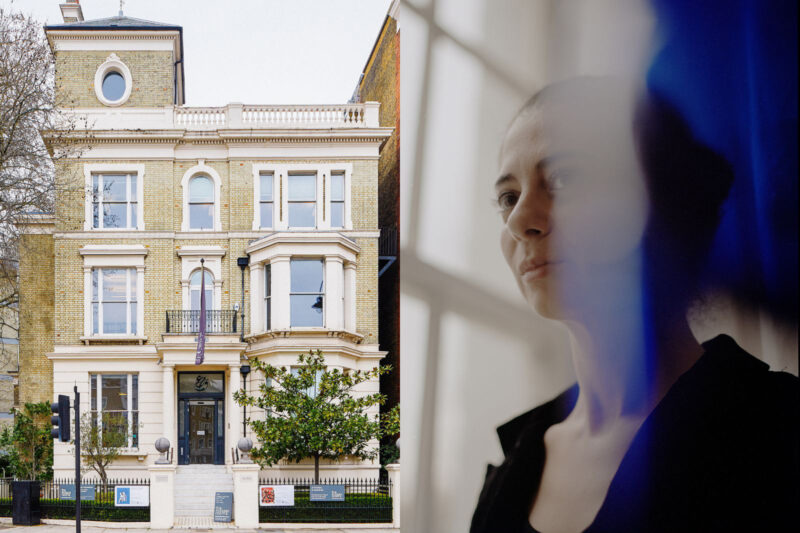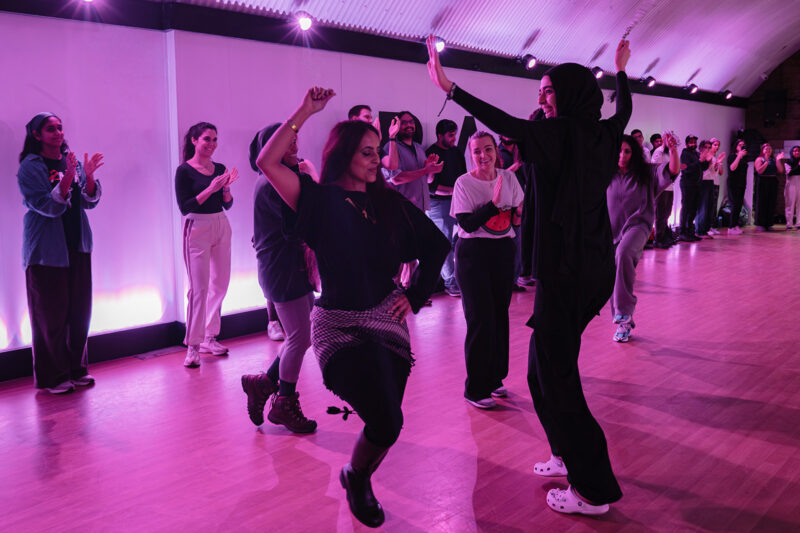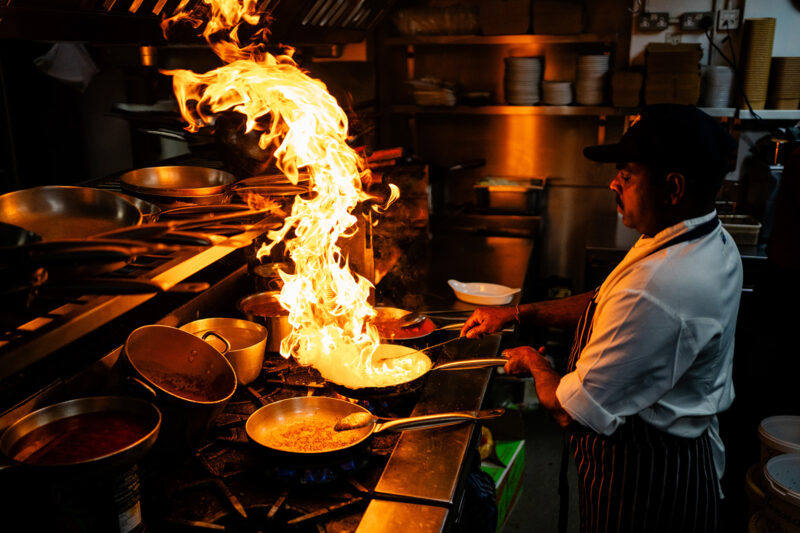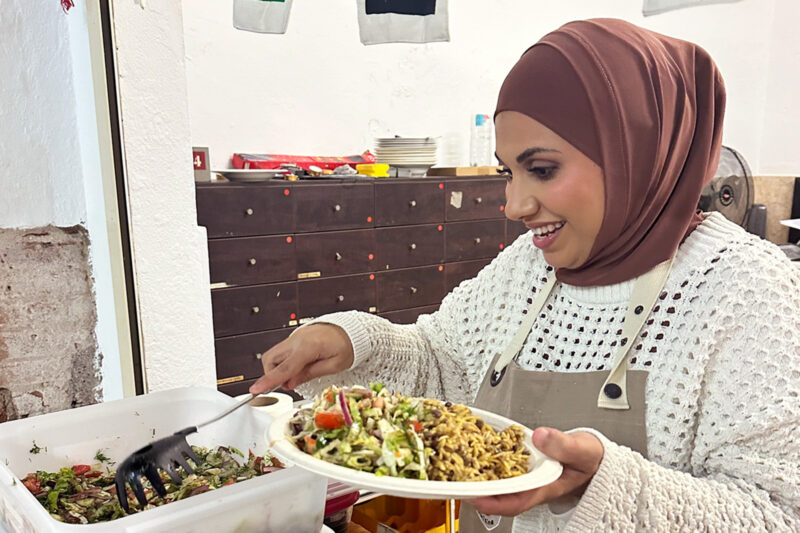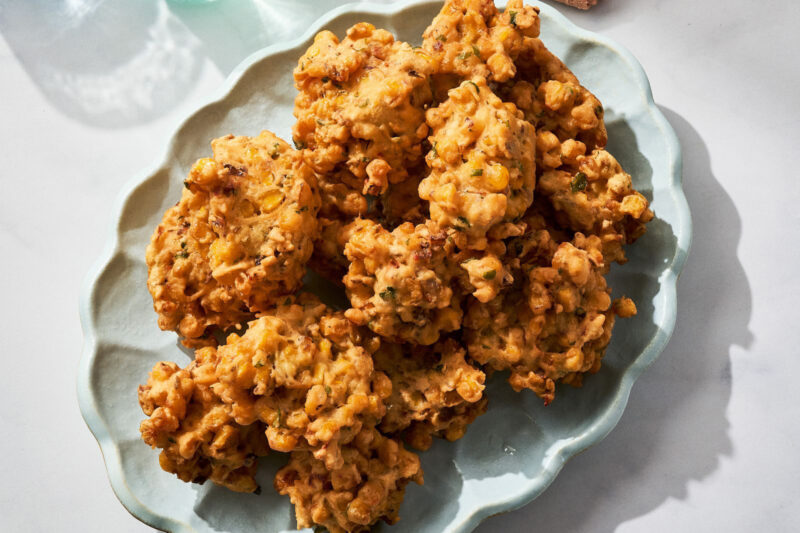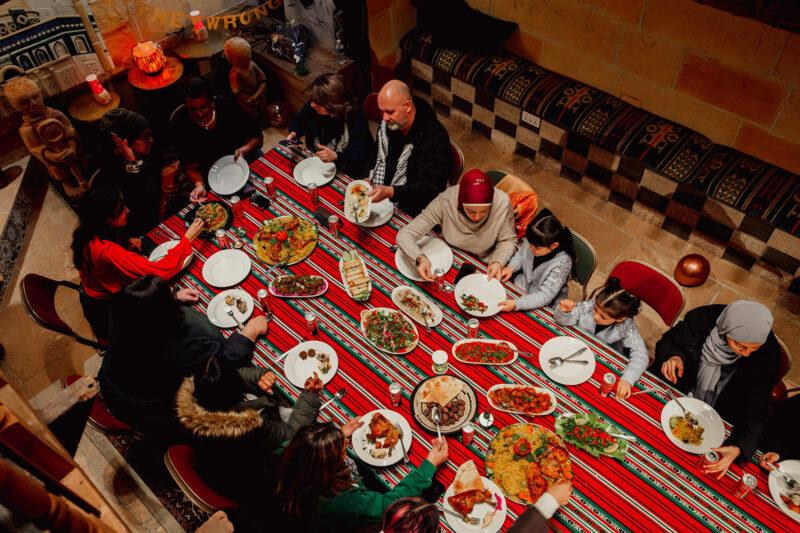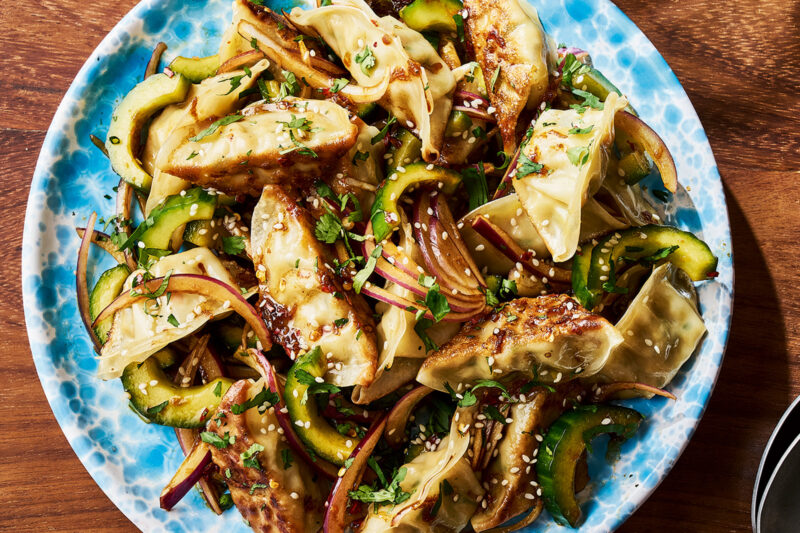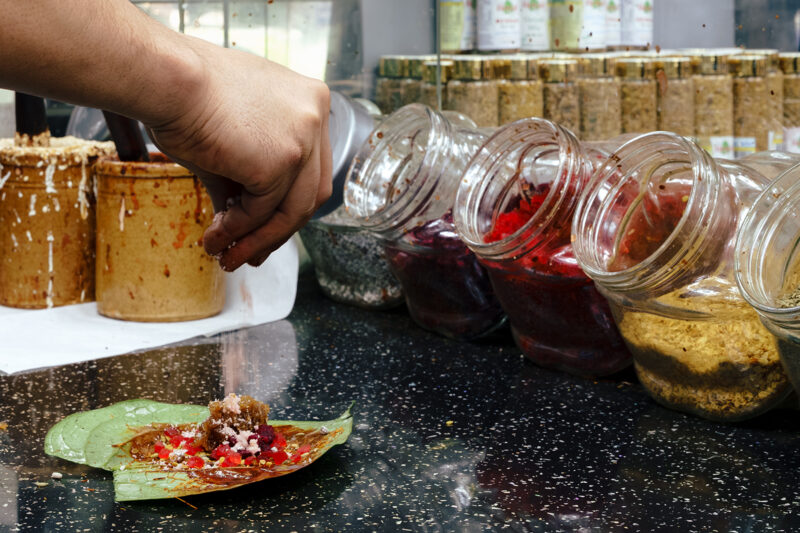The rise of halal Korean food
Restaurants are riding an unstoppable wave of interest in Korean culture and cuisine, serving up fried chicken and spicy jjigaes to hungry Muslim customers
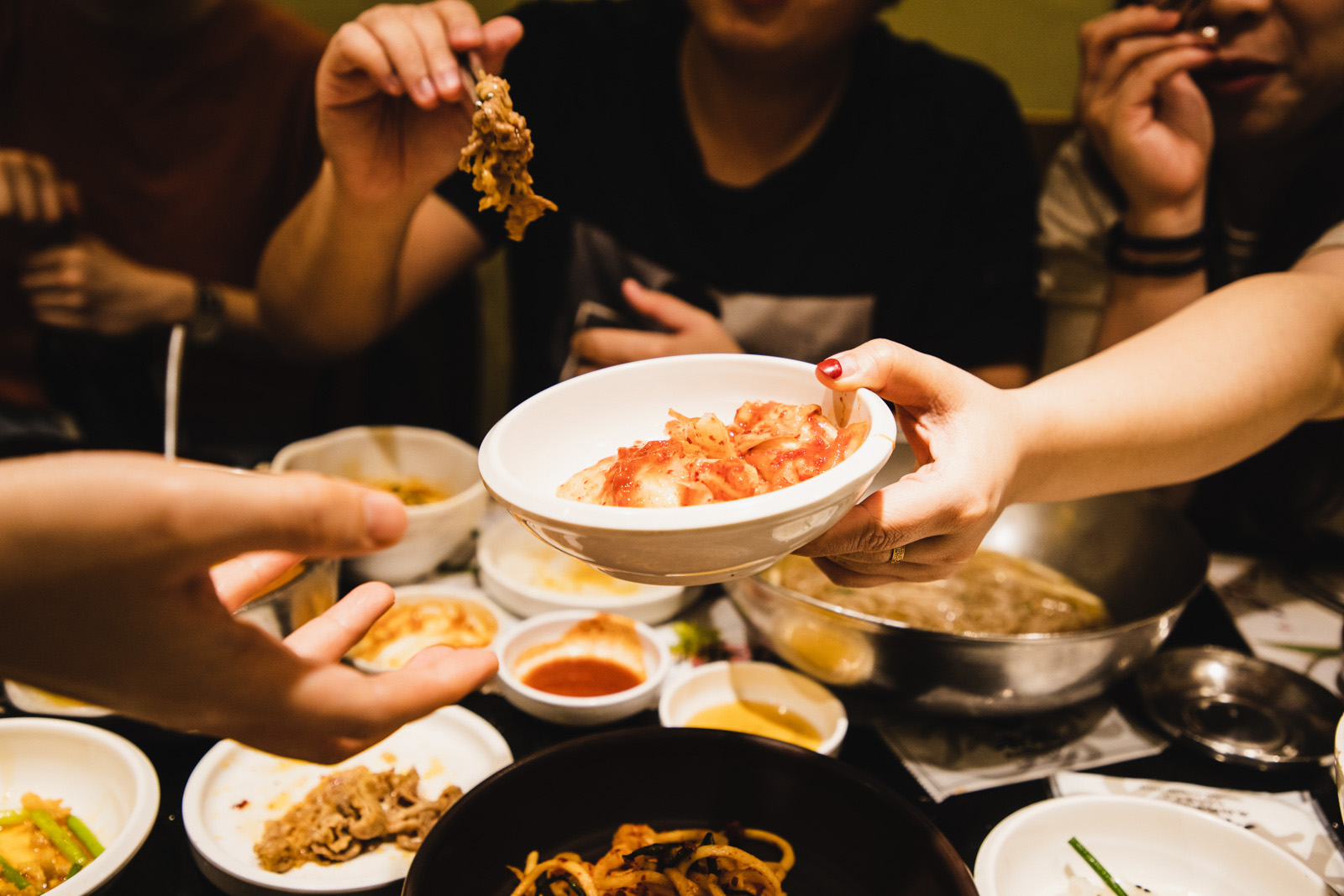
Walking into the Korean BBQ and Vegan in the Barbican area of central London, the aroma of searing meat hits you instantly. Sitting in brightly coloured booths, couples and groups of friends drop whole steaks, strips of marinated beef and ribs onto grills inset into each table, sending plumes of fragrant smoke into the air.
“Customers come in and ask us for dishes they have seen on TV and in movies. It’s Korean soft power,” says our waiter, reflecting on the two-storey establishment’s popularity with a British public increasingly obsessed with Korean culture.
Opened in 2018, the restaurant is one of a small but steadily growing number of Korean eateries catering to Muslim customers, with an alcohol and pork-free menu boasting extensive plant-based offerings and full certification by the Halal Monitoring Committee.
Bibimbap is a comforting version of a dish found in many food cultures — rice bowls with marinated beef and vegetables — made unique by being served in hot stone bowls and topped with an egg, then mixed together and spiked with a spicy red chilli paste called gochujang. The dish is also offered in a plant-based version, along with other vegan takes on Korean staples such as kimchi and topokki, as well as silken tofu and soybean paste soups.
Many customers are drawn in by the restaurant’s fried chicken, boasting a crisp and delicately spiced outer layer, coated in a choice of sauces. Options include gochujang, honey butter, and soya and garlic sauce.
Fried chicken has only become an integral part of Korean cuisine over the past 50 years. Its introduction is often attributed to the arrival of American troops during the Korean war in the 1950s. Local chains sprang up many years before the first KFC opened in the country and, by the 1980s, they had developed their own take on the dish, featuring a variety of sauces and toppings.
Bolstered by enthusiastic social media coverage, fried chicken now dominates the Korean food scene in London and is becoming ever more accessible to Muslim diners. At Seoul Bird, a Korean fast food outlet with branches in Westfield Shepherd’s Bush and Canary Wharf, all the poultry used is halal. Bento Bab, whose restaurants in Aldgate and Clerkenwell specialise in traditional Korean cuisine, also serves halal chicken.
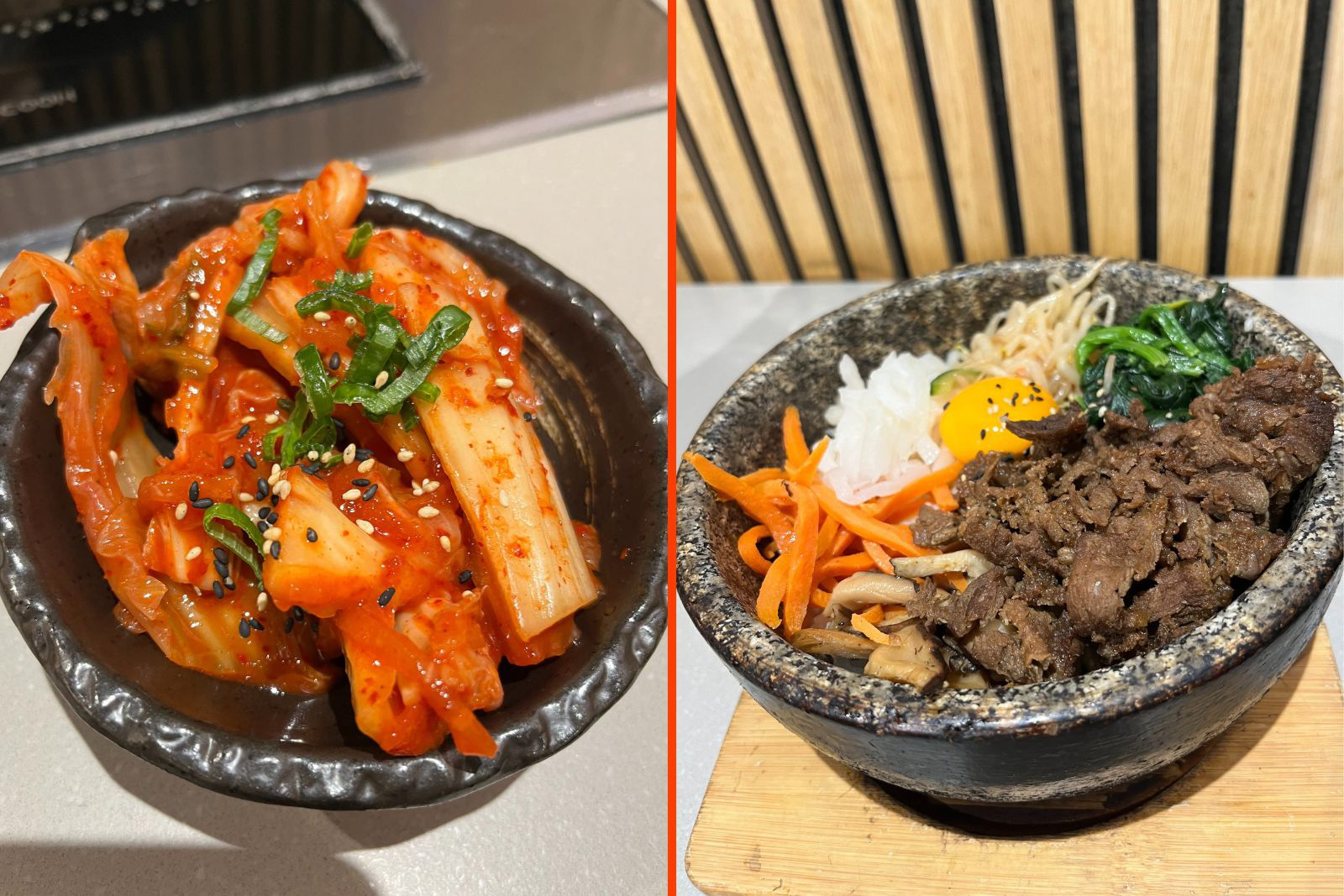
Meanwhile Bunsik, a Korean street-food chain with branches in London and Manchester specialises in another viral dish: the K-dog. This guilty treat comprises a frankfurter on a stick, coated in a crispy, deep-fried cornmeal outer layer that can be topped with cheese and an array of sauces, including sweet chilli, Korean mayonnaise and ketchup. Bunsik proudly states that its restaurants are fully halal, but it would have been easy to figure that out just by looking at the line of Muslim customers snaking their way towards its Leicester Square branch on the recent Saturday afternoon I visited.
The increasing popularity of Korean food with young Muslims is often linked to a wider fascination with the country’s culture, driven by K-pop groups such as BTS and Blackpink as well as blockbuster movies and TV shows including Parasite and Squid Game.
For Esraa Al Timimi, 39, this attraction to all things Korean now extends to her own home cooking. Among her favourite things to make are topokki — a glutinous rice cake served in a spicy stew — and kimchi, the tangy fermented cabbage that is both a staple side dish and provides the foundation for a variety of pancakes, stews and fried rice dishes.
‘I really enjoy all the flavours and ingredients. I would love to visit South Korea one day also as it looks so beautiful.’
Despite being home to a very small Muslim community — accounting for just 0.2% of the population — South Korea is becoming a popular destination for Muslim travellers. So popular, in fact, that the country’s official tourism organisation has developed a special guide for visitors seeking halal food options and prayer spaces.
There has also been a marked increase in the availability of halal Korean ingredients available to home cooks in the UK. Yeohan Kim, 37, is a London-based Korean actor and model who converted to Islam in 2021. “In the grocery store I now find products such as noodles, sauces and snacks with stamps saying halal,” he says.
During the second coronavirus lockdown Kim ran a pop-up Korean cafe with his mother in Ealing, west London, using meat from a local halal butcher. Initially, the cafe was extremely busy as word spread among locals and online food bloggers about a fully halal Korean eatery. However, due to high rents and the pressures of lockdown the business ended. “It was a fun, short experience,” he says.
Somunnan Korean in Clapham, south London is another small, neighbourhood eatery, specialising in freshly made halal Korean dishes. The operation is run by Ibrahim Ibragimov, whose mother is Korean and father is from Uzbekistan, and his wife Nigora. Ibragimov cooks and prepares traditional Korean dishes including jjigae — stews and soups containing seafood, meat or vegetables in a spicy, kimchi-based broth as well other classics such as bibimbap and bulgogi — barbecued beef strips in a soy, garlic and ginger marinade. He also sells a range of Korean snack foods and soft drinks.
The fried chicken is tangy, sticky and spicy and the kimchi pajeon (kimchi and green onion) pancake is crispy and delicate, the sourness of the cabbage perfectly complementing the sweetness of the alliums. The topokki, however, is the real standout. Ibragimov recommends the version topped with melted cheese, which blends beautifully with the slightly chewy rice cakes and spicy stock.
On a rainy weeknight evening during Ramadan, Somunnan Korean fills quickly with families, Muslim friends breaking their fasts and locals from all walks of life. For anyone looking for a halal taste of Korea, places like it are a gift, serving up bold flavours and new textures to an increasingly hungry audience.
 Newsletter
Newsletter


